Lois Ingrum
St. Louis, Missouri

Lois Ingrum the CEO/President of L.D. Ingrum Gallery & Studio Inc (Ingrum Studio)., Ingrum Studio prides itself as one of the leaders in providing comprehensive range of photographic/graphic art, installation of fine art and signage. She has worked in media arts and conducted community arts programs since 1983. Her community arts experience includes work with Ranken Technical College, the Saint Louis Art Museum, the St. Louis Public Schools, North St. Louis Arts Council, COCA interchange, ArtWorks and Support-a-Child International. She has a B.S. in Business Management and is also a respected member of St. Louis’s arts community. In 2001 she became a Fellow of the Community Arts Training Institute (CAT), an intensive program sponsored the Regional Arts Commission (RAC)( she is presently in the TIGER Fellowship). Lois technical skills and artistic accomplishments as a photographer and her deep connections to the St. Louis community and its African-American culture make her a valuable source for the community. In addition to her busy schedule as a professional photographer and teacher, she has worked as an instructor for The Doll Photography Project since 2008.
The story behind “The Doll Project”
As a photographer and business owner there have been many occasions where I have been involved in photo projects where students were documenting their community. On more than one instance we would come across a memorial totem shrine. These shrines were erected as a remembrance of where a child’s life has been cut short. After many of these walks I stopped talking about the shrines with the students and we would just walk pass them. One day I was out shooting and I walked past a newly erected shrine with no thought of the young life that was no longer with us. I stopped to re-think the shrine that represented the life of someone’s child. This could have been a future community leader, or possible the leader of our country being gunned down before any of this could be realized. At that point I started taking photos of the shrines.
The Doll Project started out as way to document the shrines but it has evolved into conversations with the youth about effective ways to resolve conflict. It also made me realize the importance of using listening skills, because when it comes to effective conflict resolution, how effectively we listen is at least as important as how effectively we express ourselves. It’s vital to understand the other person’s perspective, rather than just our own if we are to come to a resolution. As quoted by my father many years ago, “a closed mouth and open hands can restore peace”. What this meant was, when you listen to the person you’re having conflict with you may find out that you are on the same side of the conflict. Having an open hand may mean a handshake is possible, whereas, with a closed fist it’s improbable.
Presentation(s):
Inquiry and Research in Arts-Based Community Development 1
Day 2 / Apr, 13 @ 10:30 am
Lower Level : Room D
This session is a series of inquiries briefly presented by fellows in an arts-based community development training. Each was asked to create a 10 minute presentation about their research.
MARGIE P. HOLLINS: How can theater cross barriers to raise breast cancer awareness among young African-American women who may not know that they are at risk?: African American women are among the smaller population for breast cancer, but have the highest fatality rate. How can cultural-specific messages in theater provide motivation for behavior change, and inspire Action?
BETH DROUANT: Advocacy, Self Reflection, and Disability: How can polarized communities use art to create a stronger interrelation with pride and visibility? How do we bridge the gap between Deaf and deaf, speaking and signing, disabilities and abilities?
ED REGGI: Stories, Screens and Value: How do stories shape our self identity? How does storytelling form our subconscious and how do we relate incidents in our life to stories that we have read or watched? How do stories allow participants to experience different worlds altogether. Throughout time, real life and fictional stories have enlightened tribes, societies and entire cultures. How has the experience changed with the intersection of digital and storytelling?
RENEE FRANKLIN:Redefining Museum Community Engagement: Museums benefit from public privileges and have the public responsibility to be accessible to everyone. Many mainstream museums “claim” to be developing strategies to attract new visitors and deepen their community engagement. Are they making the institutional commitment to achieve and sustain this goal?
LISA HARPER CHANG: Social Work Practices in Art Museums: How do museums become good members of the community? Can social work ethics and practices enhance the art museum’s role in building stronger, more inclusive communities? What are the benefits and challenges of this approach?
REGINA MARTINEZ:The Salerno House Chapter 1: Keys Open Doors: Unlocking our understanding of how to sustain community built on art and relationships. Presenting with Tabatha Pate.
LOIS INGRUM: The Doll Project: Can The Doll Project create understanding and learning about the need for public mourning, healing, and closure as a reaction to violent deaths in our communities?
The Community Arts Training (CAT) Institute at the St. Louis Regional Arts Commission created a one year pilot training program that further builds on the the CAT Institute’s cross-sector training in arts-based community development. The Institute’s Graduate Education and Research Program – referred to by the fellows and faculty as TIGER – is an expansion of the Institute’s training with an inquiry-based curriculum for artists and for community/social service practitioners to examine and go deeper into their arts-based work.
TIGER Fellows are CAT Institute graduates and experienced practitioners who have indicated they are ready to expand their scope of practice and become more assertive in their approach to significant community challenges to create positive social change. TIGER aims to produce graduates who will apply arts-based tools and strategies to specific issues and have a more honed, intentional focus for effecting change. The TIGER Fellows are tasked to engage in meaningful research in an area of inquiry of their own choosing with the intention of deepening their individual effectiveness and influencing the field of arts-based community development.
TIGER is underwritten by RAC and the Kresge Foundation. TIGER Faculty: Kathryn Bentley, William Cleveland, Elizabeth Goebl-Parker, Jane Ellen Ibur and Roseann Weiss (Director).





